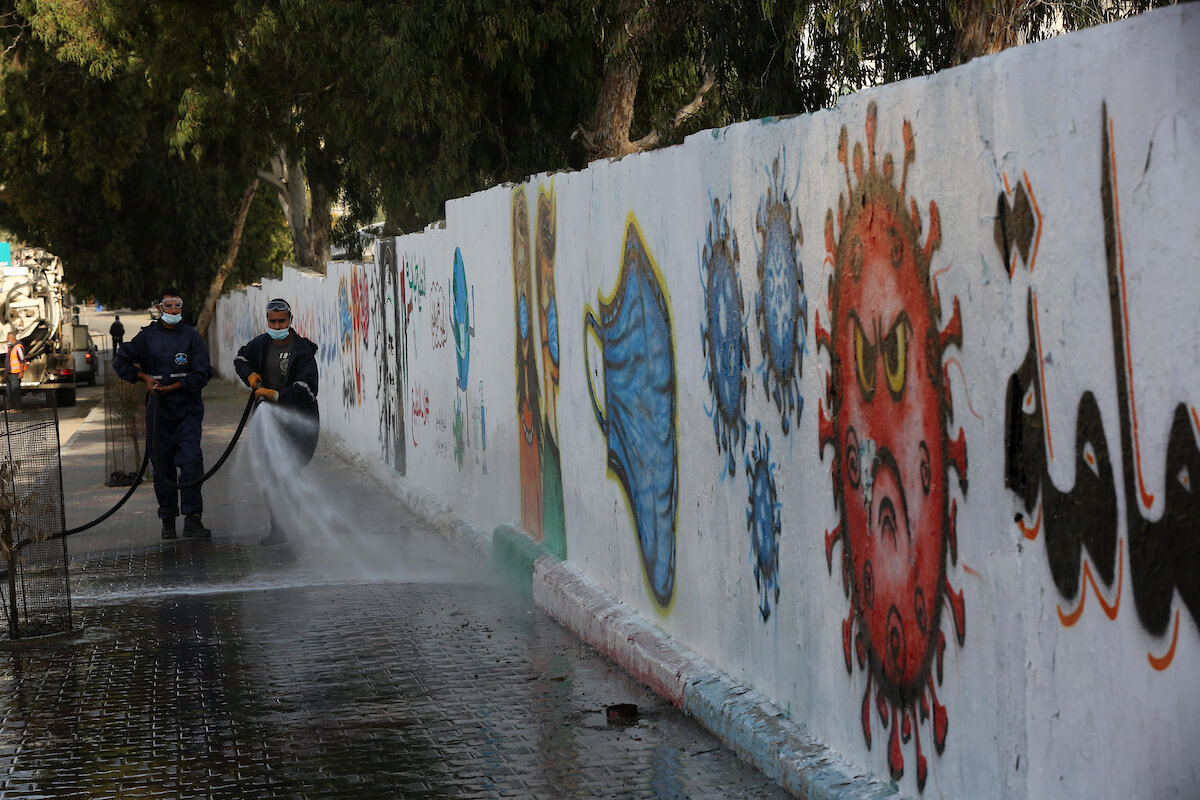
Coronavirus cases have continued to surge in Palestine, with the daily rate of new cases and death rate reaching new heights with every coming day.
In the past 24 hours, Palestinian health officials have reported 2,307 new cases and 23 deaths in the West Bank, East Jerusalem, and the Gaza Strip.
Hospital beds and ICUs have continued to fill up, with 135 COVID-19 patients still being hospitalized in ICUs, 39 of whom are connected to respirators, Minister of Health Dr. Mai al-Kaila said.
Al-Kaila has said that the majority of COVID-19 related deaths have occurred among people with pre-existing conditions like respiratory conditions and other chronic illnesses.
According to the MOH, active cases of the virus account for around 19 percent of the total number of reported cases since the beginning of the pandemic, which now stands at 128,512.
One of the worst districts this week in terms of new cases of the virus was the Hebron district, which was the epicenter of the outbreak of COVID-19 this summer.
Earlier this week residents of Hebron staged protests against the Palestinian Authority (PA) over renewed COVID-19 lockdowns across the West Bank, sparking clashes and confrontations between armed civilians and PA security forces.
Video footage circulated around social media showing Hebron residents firing shots into the air, with PA forces firing tear gas at demonstrators to disperse the crowds. Similar confrontations had broken out between Hebron’s residents and PA security forces over lockdowns earlier in the pandemic, as locals expressed their frustration over the effects lockdowns were having on their businesses and the local economy.
Throughout the lockdown this week, PA police and security forces have restricted movement within districts of the West Bank like Bethlehem and Nablus, closing down all non-essential businesses, schools, and offices.
As this brutal wave of the virus continues to spread, a great amount of uncertainty surrounding the COVID-19 vaccine and Palestine’s access remains.
Palestinian health officials have reportedly secured the delivery of four million doses of the Russian Sputnik V vaccine, only a fraction of which (150,000) are expected to come in the first shipment sometime at the end of December or early January.
Haaretz also reported that the PA were also holding negotiations with both Pfizer and Moderna to get their vaccines, but likely for small amounts of the vaccine due to the fact that the PA does not have the capacity to store Pfizer’s vaccines, which requires storage at extremely cold temperatures.
The MOH has said that once the vaccine arrives to Palestine, the elderly and chronically ill, as well as health officials, and journalists will be among some of those given first priority for the vaccine.
Related posts:
Views: 0
 RSS Feed
RSS Feed

















 December 16th, 2020
December 16th, 2020  Awake Goy
Awake Goy  Posted in
Posted in  Tags:
Tags: 
















